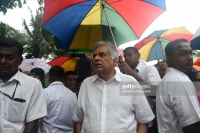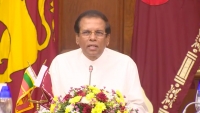Taiwan's Criminal Investigation Bureau (CIB) said today it was preparing to send investigators to Sri Lanka to seek further details on the reported arrest there of two suspects accused of helping hackers stealing millions of US dollars from a Taiwanese bank.
However, due to the fact that Taiwan has no diplomatic ties with Sri Lanka or any government representatives stationed there, the CIB told CNA, it would take some time to get everything in order for the investigators to go there.
According to local and regional news reports, Far Eastern International Bank was hacked by means of a computer virus and some US$60 million was wired to the accounts of the suspects at a Sri Lanka bank in the capital Colombo.
Two suspects were arrested last week in Sri Lanka when they tried to withdraw the money, and police there were look for a third person, according to the news reports.
"We are looking at some US$1.3 million that had come into three accounts in Sri Lanka," an unnamed Sri Lankan official involved with the investigation was quoted as saying. "We have taken two people into custody, and we are looking for one more person."
On Saturday, Far Eastern Bank said it had recovered most of the stolen money and that its losses would amount to no more than US$500,000.
The bank said it noticed some irregularities in its computerized transaction system on Tuesday and then discovered that some of its computers and servers had been infected with malware.
The Society for Worldwide Interbank Financial Telecommunication's (SWIFT) network was also compromised, which allowed the hackers to wire money to international destinations such as Sri Lanka, Cambodia and the United States, Far Eastern Bank said.
The bank said that on Thursday it reported the matter to Taiwan's Financial Supervisory Commission (FSC) and the CIB, which in turn informed the International Criminal Police Organization and asked for assistance.
The FSC said that it was an isolated case in Taiwan and advised that Far Eastern Bank, not its customers, should absorb the losses, the bank said.
Over the weekend, after Premier Lai Ching-te was informed about the case, he asked the relevant agencies to review Taiwan's information security and to close any loopholes, according to Cabinet spokesman Hsu Kuo-yung.












